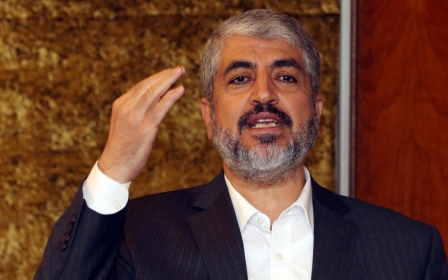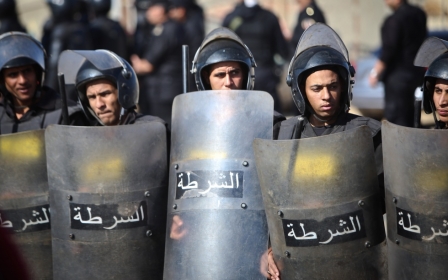Two killed in bomb blast at Egypt's Supreme Court

Two people were killed in a bomb explosion outside the Egyptian Supreme Court in Cairo on Monday, hospital officials said.
Nine people were injured, one critically – the majority of the wounded were civilians, according to the interior ministry, who said several police officers and army conscripts were also hurt.
The explosion appeared to be aimed at a police checkpoint near the court, a hospital official said.
One of the dead, 24-year-old Ahmed Saeed Fawzi, was a lawyer who was leaving the building after signing his oath of admission to the legal profession at the time of the explosion.
CCTV footage, aired on Egyptian television, showed a bomb being placed under a car in a busy street in central Cairo.
Amateur video showed civilians running to the scene of the explosion, shouting for ambulances and medics for the injured.
The court is home to the highest judicial authority in Egypt, and also houses the office of the prosecutor general, Hisham Barakat, who according to local media was in the building at the time of the explosion.
In the wake of the explosion Barakat said the targeting of the Supreme Court building was an attempt to prevent prosecutors from carrying out their “mission” to investigate “the facts of terrorist acts that have happened in the country recently”.
The prosecutor general vowed to speed up the enforcement of Egypt’s new “Terrorist Entities” law, a bill announced by President Abdel Fattah al-Sisi last week that allows courts to "dissolve any group that carries out or encourages in any way actions harmful to public and private property."
Monday’s attack came a day after two civilians died in a bombing outside a police station in southern Egypt.
A worker in a nearby cafe in Cairo said he ran out into the street after hearing a loud explosion.
"I found three people lying on the ground covered in blood."
Police sealed off the area and swept it with bomb-detector dogs as ambulances tried to reach the site through a crowd of onlookers.
Militants have regularly set off bombs in the capital, mostly targeting police, after the 2013 military overthrow of Muslim Brotherhood president Mohamed Morsi unleashed a deadly crackdown on his supporters.
A previous explosion at the Supreme Court building wounded 12 people last October.
The deadliest attacks since Morsi's overthrow have been launched by the Islamic State group's affiliate in Egypt, Sinai-based Ansar Beit al-Maqdis, which has killed scores of soldiers and policemen.
The organisation set up branches in the Nile Delta, targeting police headquarters in Cairo and other cities before a police crackdown last year.
Sisi was elected to office in May 2014 pledging to eradicate the militants, but he has had limited success, especially against the insurgency in the restive eastern province of Sinai.
On January 29, simultaneous car bombings and mortar attacks on security headquarters in the peninsula killed at least 30 people, most of them soldiers.
Stay informed with MEE's newsletters
Sign up to get the latest alerts, insights and analysis, starting with Turkey Unpacked
Middle East Eye delivers independent and unrivalled coverage and analysis of the Middle East, North Africa and beyond. To learn more about republishing this content and the associated fees, please fill out this form. More about MEE can be found here.




